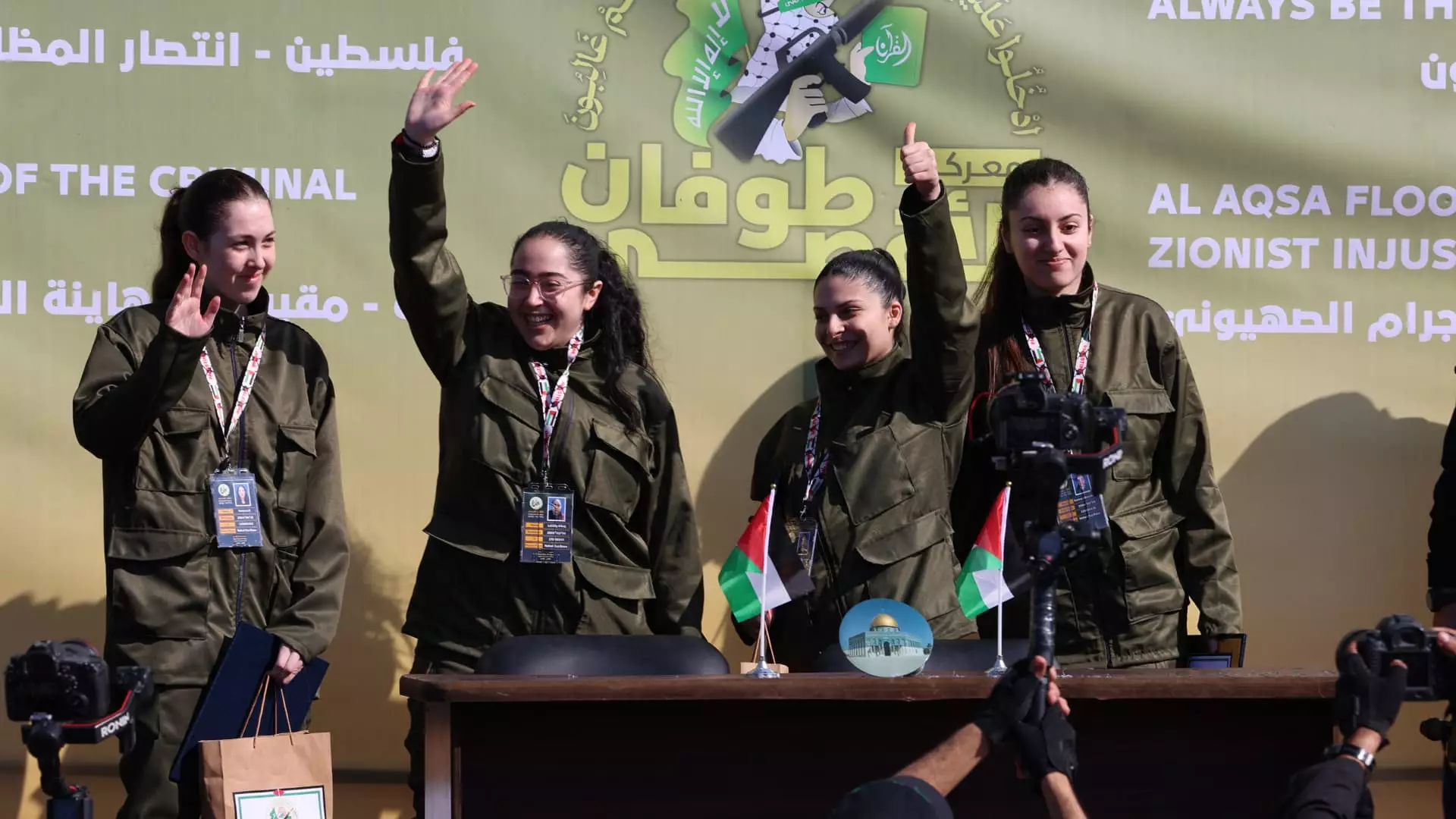The recent hostage exchange between Hamas and Israel marks a significant yet bittersweet moment in the ongoing violence and complex political landscape shaped by the Gaza conflict. On Saturday, Hamas released four female Israeli soldiers in exchange for around 200 Palestinian prisoners, forging a precarious truce meant to end a war ravaging Gaza for 15 months. The emotional weight of this exchange highlights both the profound sorrow of conflict and the glimmer of hope amidst an unraveling humanitarian crisis.
The four Israeli soldiers—Karina Ariev, Daniella Gilboa, Naama Levy, and Liri Albag—were released from their captivity and celebrated by crowds in Gaza City. Their abduction occurred on October 7, 2023, during a surprise attack by Hamas, which resulted in the deaths of approximately 1,200 Israelis and the taking of over 250 hostages. The images of the soldiers surrounded by armed Hamas members while being greeted by an enthusiastic crowd illustrate the blurred lines between victory and defeat in this long-standing conflict.
Upon their return, tears of joy and applause erupted from the soldiers’ families, who witnessed the poignant moment unfold live from a military base across the border. In Tel Aviv, the scene mirrored that of Gaza as hundreds of Israelis came together at Hostages Square to watch the handover on a giant screen, celebrating the reunion while simultaneously facing the harsh reality of ongoing hostilities.
Despite the overwhelming emotions surrounding the soldiers’ return, the day was marred by disappointment. An anticipated release of a female civilian hostage did not occur, leading to accusations of a breach of the truce on the Israeli side. Hamas attributed the issue to a technical problem, illuminating the fragility of the ceasefire agreement. Prime Minister Benjamin Netanyahu’s stance to bar Palestinians from returning to northern Gaza until the issue is resolved underscores the heightened tensions and stakes surrounding these negotiations.
The situation further complicates an already distressed humanitarian landscape, with hundreds of thousands of Palestinians displaced during the conflict. As these negotiations unfold, mediators, including Qatar and Egypt, strive to resolve underlying tensions, which could either solidify or unravel the tenuous ceasefire.
This exchange represents the second significant hostage deal since the ceasefire began on January 19, 2024, highlighting the complex dynamics at play. In a prior event, Hamas had released three Israeli female civilians in exchange for 90 prisoners, initiating a pattern of negotiation that has yet to fully address the plight of remaining hostages. Currently, 90 individuals remain unaccounted for, with Israeli authorities expressing concerns over a third of them being declared dead in absentia.
The broader implications of the ceasefire highlight the dire conditions in Gaza, where estimates reflect over 47,000 Palestinian deaths as a result of violence and bombardment following the conflict’s escalation. With Israel losing more than 400 soldiers and Hamas facing undisclosed casualties, the grim toll of war continues to weigh heavily on both sides.
As both Hamas and Israeli officials navigate the complexities of future negotiations, the possibility for a more permanent resolution hangs in the balance. The continued exchange of hostages for prisoners underscores the urgent need for comprehensive discussions that extend beyond immediate concerns. The cycle of violence, retribution, and retaliation has created a landscape fraught with distrust, further complicating prospects for long-term peace.
While the recent release of the four soldiers evokes moments of joy, it is critical to recognize the broader context of suffering that both Israelis and Palestinians endure. The emotional reactions, woven with threads of hope and despair, lay bare the human dimension of a conflict that remains defined by loss. Only through committed dialogue, empathy, and understanding can the path to reconciliation be paved. As this chapter of the longstanding conflict unfolds, the stories of those affected yet again remind us of the urgent need for peace in the region.

Leave a Reply